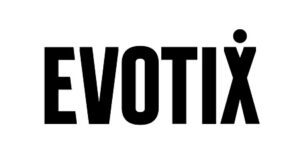‘We need to accept that things can go wrong’ – safety experts discuss the culture surrounding workplace safety in SHP’s Webinar Wednesdays series.
SHP Webinar Wednesdays is back for 2021. A season of interactive health and safety webinars throughout September and October giving you the opportunity to learn about a range of key industry topics. The webinars are hosted by SHP and feature a diverse range of speakers, moderated by SHP Editor, Ian Hart.
In this session, which is available to watch on-demand now, Evotix (formerly SHE Software) representative Julian Taylor, and Maria Anderson, Global Head of Health Safety and Wellbeing at Cambridge University, discussed the ongoing conundrum of the culture surrounding safety in the workplace.
Safety culture is often discussed as a component of change, but it is important to consider what type of culture we truly need to develop, who can contribute to that culture, and how it is key to improving your health and safety performance.
“People are nervous about raising issues when leadership is poor, our job is to stimulate leaders to have better relationships with their teams”.
Both experts begin by outlining their positions in the sector, and why they are so passionate about encouraging these crucial conversations on safety culture standards in the workplace. Julian Taylor, Head of Sales Enablement at Evotix embarked on a mission to improve conversations on safety after witnessing a workplace accident first-hand. He then attended an IOSH conference where a panellist posed the question, ‘when was the last time you saw a job stop because someone raised a safety concern’, to which the audience remained silent. Julian believes that the absence of senior leadership presence when it comes to safety concerns, is the reason why employees choose not to speak up.
Maria shares a similar view, arguing that employers focus too much of their attention on completing paperwork and ticking boxes. Instead, they should be prioritising conversations with workers and proving to them that those discussions have a greater purpose.
“Before you focus on the paperwork, focus on the why.”
Maria highlighted the need for employers to understand why certain procedures are in place, and what they need to do to ensure employees know how to follow them.
A key factor for industries to consider is, to what extent are their employees motivated by business priorities? Both Julian and Maria agree that employers need to realise that, to a large extent, what matters most to their staff is the personal value of doing safety well. Both parties discuss the importance of making workplace safety simple, explaining to their workers the value of the information they are provided with by health and safety experts.
Individuals should “be in contact with senior leadership every day, not just once a month in meetings”.
Maria highlights that those in senior positions, need to learn to “accept that things can go wrong”, it is a leader’s job to learn from those mistakes and communicate their findings with employees.
Another topic discussed at length in this week’s webinar, is the generational impact on an individual’s approach to workplace safety. Maria argues that, it is the younger generations who are proving to engage better with communicative leadership. Young people are becoming more and more insistent in wanting to know that the company they work for is actively abiding to a certain set of values.
So – how can we create a culture where everybody feels comfortable raising concerns? Julian argues that what is most important is a consistency in behaviour. Companies need to rethink how they are training their staff, both Maria and Julian agree that short training sessions are the most effective as they can then be immediately implemented in the workplace.
Businesses also need to be smarter with the data they share with employees and should be in touch with leadership daily. Maria explains that, companies need to be “pro-active not reactive”, they need to have a clear understanding of why the data they are feeding back to leadership is so important. Starting conversations is an imperative first step, but how can we encourage leadership to remain actively engaged in the long-term? Watch the rest of the webinar to find out…
Available on-demand. Simply fill in the form opposite to listen to this session, ‘the ongoing conundrum of the culture surrounding safety’, and others in the series.
Sponsored by

